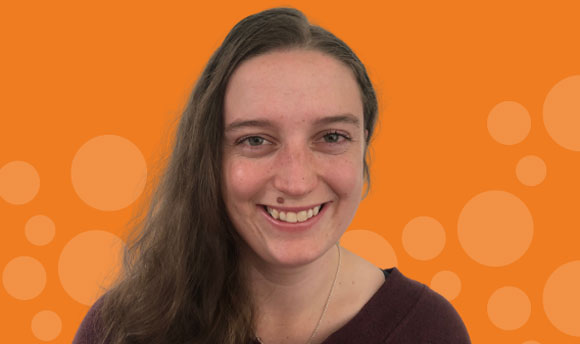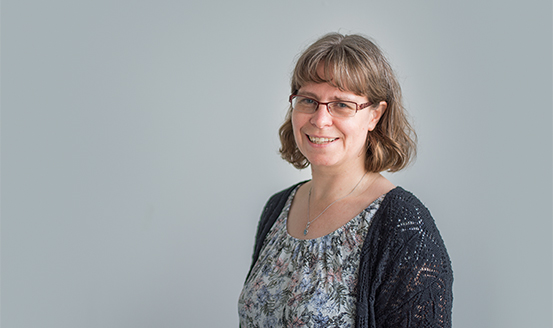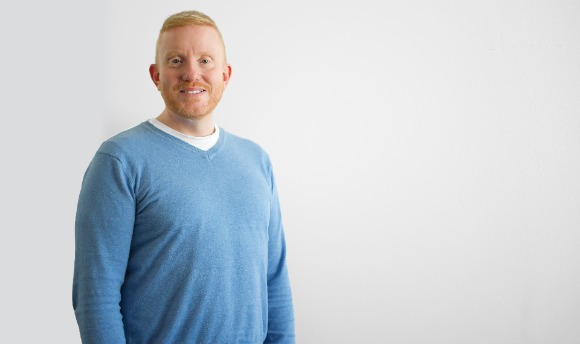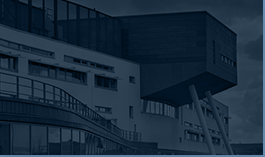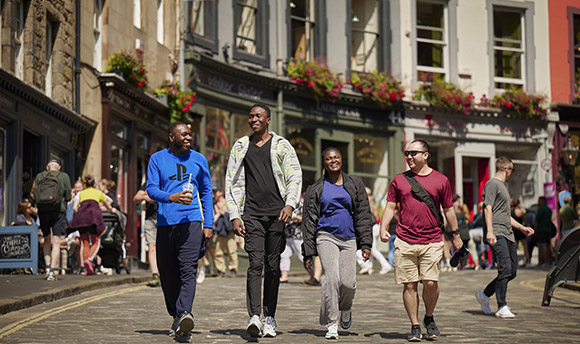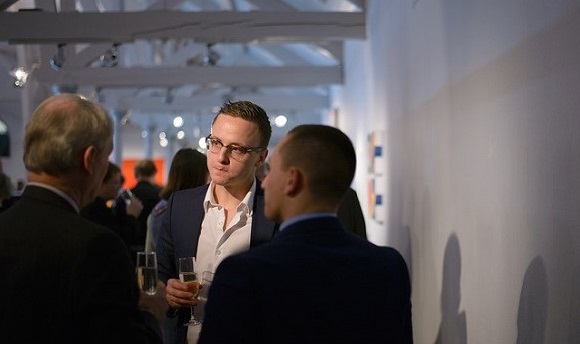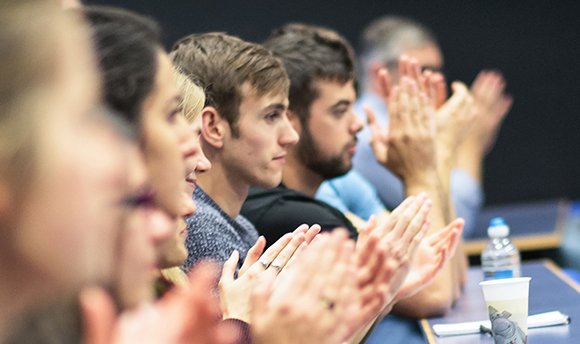- This course is still open and may be open in Clearing in August 2025.
- International applications close for the September intake on the 30 June 2025 for all applicants who would require to be sponsored on a Student visa to study here.
Master of Radiotherapy and Oncology (MRRad)/BSc (Hons) Radiotherapy and Oncology
Therapeutic radiographers specialise in the planning, administration and aftercare of radiotherapy treatment for patients, most of whom have cancer and tumours. This four year undergraduate master's/BSc (Hons) degree course will give you the theoretical understanding and practical skills you will need to build a rewarding career as a therapeutic radiographer. Practice placements are an integrated part of the course and allow you to put your theoretical knowledge into practice.
Whether you aspire to achieve a BSc (Hons) or an undergraduate master’s degree, we’ll guide you every step of the way. Please see the course structure section on this page for more information on the benefits of pursuing the undergraduate master’s route rather than the BSc.
*Please note all students apply and enrol onto the Master’s route and there will be an option to switch to the Bachelor route at the end of Year Two.
Why QMU?
- Supportive learning environment: You will enjoy a very high level of support and mentoring from our staff. We don’t take as many students as some institutions, so you will enjoy a more individual and interactive learning experience.
- Benefit from our clinical placement arrangements: We have excellent relationships with clinical departments across Scotland, allowing us to support you constantly while you are on placement. You will be the only student in each treatment area during your placements, giving you more clinical time than some other institutions.
- Great facilities for learning and teaching: You’ll learn on specialist hi-tech facilities on campus. Our purpose-built planning suite is equipped with Varian Eclipse Planning System which facilitates teaching in all areas from cross-sectional anatomy, radiotherapy physics, radiotherapy planning/treatment and oncology management. This facility is used for direct teaching and is also a resource for students to use independently for consolidation of their own learning.
- High graduate employment rates: With a degree in therapeutic radiography from QMU, our students are well equipped, respected and confident to start their careers as soon as they graduate, if not before.
- Professional accreditation/registration: This course is accredited by the Society and College of Radiographers and approved by the Health & Care Professions Council (HCPC). Successful completion enables application for registration with the HCPC as a therapeutic radiographer that is essential for employment in the UK.
- High ranking: In the National Student Survey 2024, QMU’s courses in the Medical Technology subject category scored above benchmark in 21 out of 27 survey questions. For example, we scored 13.9% above benchmark in the question ‘how often do teaching staff make the subject engaging?’.
A short video about this course:
Are you technically minded with an equally strong interest in person-centred care? Are you ready to make a difference? Therapeutic radiography is a rewarding profession that brings together care and technological expertise. It is the skilled application of controlled amounts of radiation to treat medical conditions, mainly cancer and other types of tumour. Therapeutic radiographers work alongside other specialties to create complex treatment plans and deliver precise radiation treatment.
Therapeutic radiographers work with patients every day to help improve their care and their lives. Therapeutic radiographers are a part of a patient’s journey, from initial referral through planning and treatment to the post-treatment review. Therapeutic radiographers are a valued member of a multidisciplinary team providing a person-centred service.
On this course you will:
- Be equipped with the knowledge, understanding and critical thinking skills you need in this rewarding career, providing cancer treatment and care in the NHS and the private sector;
- Develop your expertise through in-depth theoretical learning, clinical placements each year, and the close support of our very experienced staff; and
- Benefit from the interprofessional working focus of this course. We aim for all our graduates to be confident in their own professional identity and have the additional skills that will allow you to work as an effective multidisciplinary team member.
What are the differences between diagnostic and therapeutic radiography?
Structure
During your first two years, you’ll join a diverse cohort of students, exploring the fundamental principles of therapeutic radiography and gain hands-on practice experience through placement-based learning within health and social care.
As you progress, you will move on to either the BSc (Hons) or the undergraduate master’s pathway depending on your aspirations and performance. Both pathways develop professional skills, knowledge and attributes through a combination of university and placement-based learning. The undergraduate master’s offer an opportunity to delve deeper into areas such as leadership, service improvement, research and public health, at a higher level.
Upon graduation, both pathways lead to eligibility for registration with the HCPC, opening doors to a fulfilling career in therapeutic radiography.
Find out about the benefits of studying an undergraduate master’s.
Teaching, learning and assessment
You will be taught in lectures, seminars, tutorials, practical workshops. There will be a mix of classroom and online learning. Outside timetabled sessions you will be expected to continue learning through self-study. You will be assessed by a variety of assessment methods (eg written and practical exams, written assignments, presentations and viva voce) at the end of each module.
Placements
Placements are invaluable in consolidating theoretical study into practical expertise by working directly with patients and qualified staff. You will complete practice placements in each year. You will attend a variety of placements within the NHS at various locations across Scotland. QMU manages the sourcing and allocation of placements for each student.
Placements take place across Scotland. It is therefore likely that students will have to relocate for at least some of their practice-based learning unless they have individual requirements (eg specific health needs or school age children) that mean they must remain in a specific location.
Specialist facilities
QMU offers a variety of modern specialist spaces for use by both our Master of Radiography: Therapeutic (MRad) and MSc Therapeutic Radiography (Pre-Registration) courses. We have a range of equipment available to simulate different aspect of the clinical environment. Our clinical rooms include positioning lasers and a range of immobilisation equipment to allow us to replicate patient positioning and set up scenarios. We also have our computer planning suite which allow us plan radiotherapy treatments, explore image verification and patient management. Students have access to numerous anatomical models which are incorporated into their learning during practical sessions and can be used during self-directed study sessions.
You can view a 'Specialist Facilities' film further down the page.
Teaching staff, class sizes and timetables
You can read more about the teaching staff on this course at the bottom of this page. Please note that teaching staff is subject to change.
For more information, please also visit ‘How we teach and how you’ll learn’.
Year One
You will:
- complete modules that include anatomy and physiology, scientific and technological therapeutic radiographic principles;
- prepare for clinical practice by developing your communication skills and exploring the professional requirements of a therapeutic radiographer;
- study radiotherapy treatment and commonly occurring cancers;
- focus on developing your academic skills, including essay writing and how to access information; and
- complete a two-week placement that provides the opportunity to experience and integrate into the clinical environment.
Modules
- Anatomy and Physiology
- Becoming an Allied Health Professional
- Developing Resilience of Self and Others
- Introduction to Radiotherapy Practice
- Radiotherapy Practice 1
- Finding your Academic Voice
Year Two
You will:
- undertake modules that explore the delivery of radiation treatment, therapeutic radiographic techniques including cross-sectional imaging, the management of patients undergoing radiotherapy treatment and cover more oncological sites;
- continue to broaden your understanding of health and wellbeing and how to support behaviour change through health coaching conversations;
- further enhance your academic skills by developing a critical approach to literature and your professional practice; and
- develop your practical skills through two 6-week clinical placement blocks.
Modules
- Health Coaching Conversations
- Developing a Spirit of Inquiry
- Cross Sectional Imaging Science
- Radiotherapy Practice 2
- Radiotherapy Placement A
Year Three
You will:
- complete modules that are designed to enhance your critical thinking and further develop your knowledge of less commonly occurring cancers and specialist therapeutic modalities;
- broaden your healthcare awareness and challenge your understanding of health education and promotion; and
- continue to link theory and practice during two 6-week placement blocks, which includes a two-week elective placement.
Modules
- Active Citizenship
- Health Literacy
- Less Common Cancers in Radiotherapy
- Theoretical and Clinical Approaches to Multidisciplinary Team Working
- Understanding and Appraising the Evidence for Practice
- Radiotherapy Placement B
Year Four
You will:
- enhance, consolidate and reflect on your theoretical, research, professional and clinical skills enabling a smooth transition to working life;
- explore leadership skills and innovative practice to meet current healthcare challenges;
- take ownership of your academic learning by undertaking a quality improvement project; and
- complete two 6-week blocks of clinical placement, including a two-week elective placement.
Modules
- Advancing Practice in Radiotherapy
- Applying Skills of Clinical Enquiry
- Professional Development for Health Practice
- Leadership and Enterprise in Healthcare
- Radiotherapy Placement C
NB The modules listed here are correct at time of posting (Feb 2024) but may differ slightly to those offered in 2025. Please check back here for any updates.
Most graduates begin working as general radiographers, with very high graduate employment rates. Later in your career you may be able to specialise in different aspects of therapeutic radiography, for example, treatment planning, treatment review and counselling.
Entry requirements
Scottish Higher: Standard: BBBC, Minimum: BCCC
A Level: BCC
Irish Leaving Certificate: H2 H3 H3 H3
International Baccalaureate: 28 points
International: IELTS of 6.0 with no element lower than 6.0. Please be aware that the minimum standard required for HCPC registration is IELTS score of 7.0 with no element below 6.5.
Required subjects: One science (Biology, Chemistry, Physics) at grade C or above at Higher/ A Level or equivalent. Plus English, Maths and a science at grade C or above at Nat 5/GCSE. We can also accept National 5 Application of Maths or Lifeskills at the same grade.
Am I a Widening Access student?: We apply the minimum entry criteria to applicants who meet one or more contextual factor. To see if this would apply to you, please refer to the access and application page.
Mature/Access: We welcome applications from mature students with other relevant qualifications and/or experience. Visit our College Leavers and Mature Students Advice page for more information.
Direct Entry: Not available. Relevant HN qualifications may be considered for entry to Year One. Please contact Admissions to see if your HN qualification is suitable.
Other requirements
- A satisfactory criminal records check from the Protection of Vulnerable Groups (PVG) Scheme, an occupational health check and personal indemnity insurance (normally through membership of the professional body) are required.
- You may be requested to be immunised against Hepatitis B.
- We expect applicants to have visited an appropriate Radiotherapy department.
Other costs
- The cost of professional indemnity insurance is the responsibility of the student. For more information on this, visit the UG 2025 fees page on our website.
- The additional costs associated with placement travel and accommodation are the responsibility of the student. Students who receive SAAS funding may be able to claim for some of these expenses to be reimbursed.
- Uniform, PVG and badge costs – please see UG 2025 fees page on our website.
Disability/health conditions
If you have a disability, long-term physical or mental health condition, or learning disability, it should not stand in the way of your studying at QMU. However, if you are not sure whether your disability might be a barrier in your studies or in relation to the professional standards, please contact the disability service who will be able to have a conversation with you about reasonable adjustments and supports available to you.
How to apply
Application for this course should be made through UCAS. More application information is available in the 'Start your Application' box at the top right of this page.
QMU
Check out the specialist facilities for the Master of Radiography: Therapeutic course
- The delivery of this course is subject to the terms and conditions set out in our 2025/26 Entry Terms and Conditions (Undergraduate).
- This course was revalidated in May 2025 which may result in some changes to the course content for 2026 entry. Please check back here for updates.
Become your best you: study at QMU
Course Overview
A blog you might like
Opportunities to meet us: open days and more
As well as open days, we offer campus tours and online events throughout the year to help you find out more about student life and studying at QMU.
Open days and other ways of meeting us: more informationCourses You Might Also Like
- Master of Nutrition (MNutrition)/BSc (Hons) Nutrition (2025 entry)
- Master of Dietetics (MDiet)/BSc (Hons) Dietetics (2025 entry)
- Master of Nursing (MNurse) (2025 entry)
- Master of Podiatry (MPod)/BSc (Hons) Podiatry (2025 entry)
- Master of Speech and Language Therapy (MSLT)/BSc (Hons) Speech and Language Therapy (2025 entry)
- BSc (Hons) Nursing (2025 entry)
